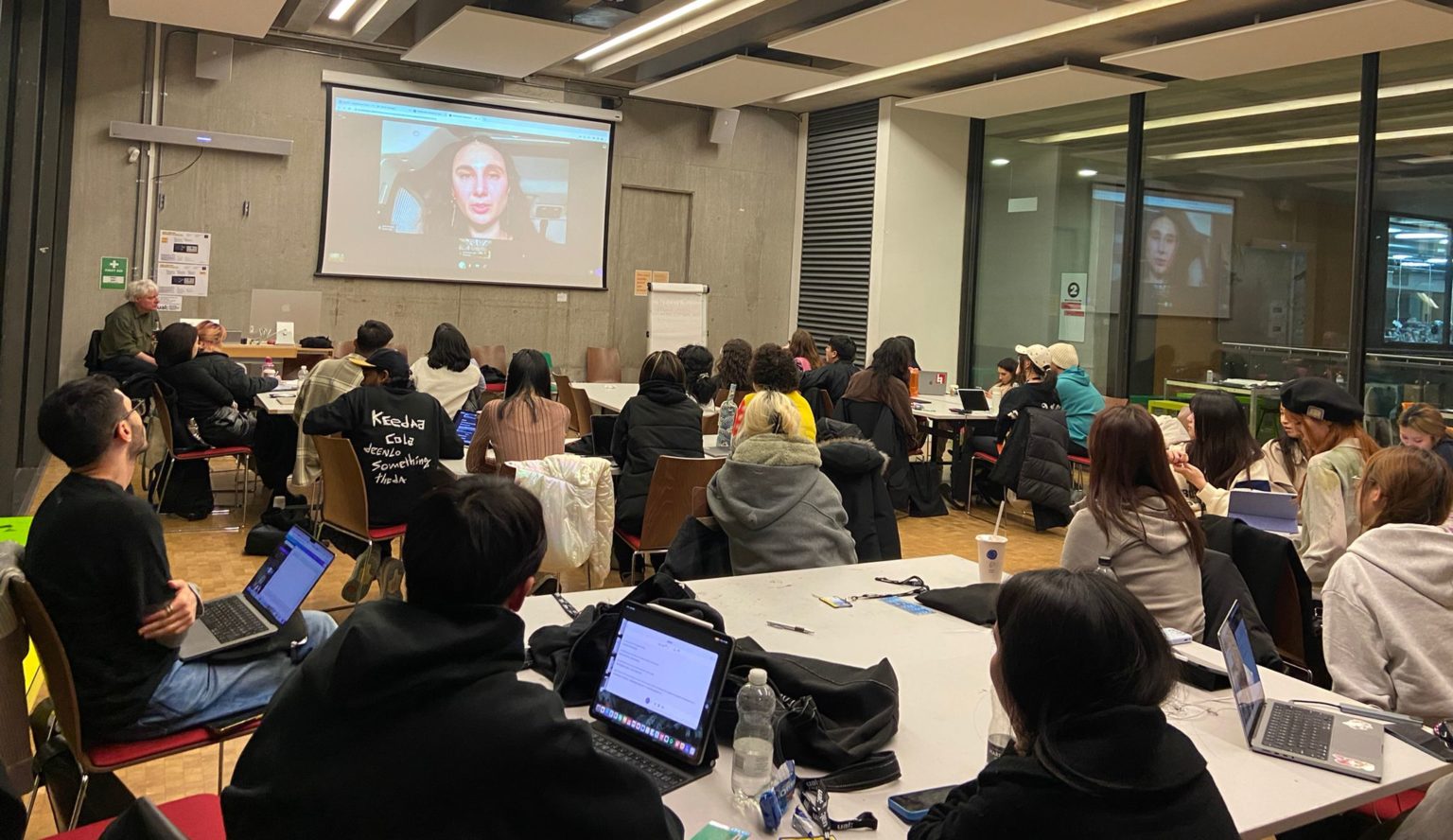The Winners of the European Press Prize 2024 now translated in five major languages
Journalism can be a powerful tool to connect people. It is by sharing stories that distances are bridged, and Europe can feel more united.
This is why, thanks to the partnership with the startup kompreno, all the Winners of the European Press Prize 2024 are now available in five major European languages: English, French, German, Italian, and Spanish.

Our News Table at our Community Event in Berlin, 2021
The collaboration with the German startup kompreno started earlier this year. They supplied the European Press Prize with English-language translations for the Preparatory Committee and the Panel of Judges. Ultimately, three of the five Award-winning contributions in the main categories were translated by kompreno.
The great power of translations
We often state that Europe is the sum of its stories. Such stories don’t always come from Europe’s centres of power. Sometimes, small facts that happen in the continent’s periphery can prove to be very important for readers living far away from the story’s source.
But in a Europe made up of so many different languages, stories might get stuck, unable to travel outside the language borders of their state. This is why translations are crucial – not only translations into English, but also into other languages.
Moreover, journalism is increasingly developing into a cross-border and collaborative endeavour. Journalists team up with their colleagues, often creating international teams or consortiums to tackle important issues. It is only natural, then, that articles will be translated and republished, distributed to different audiences, and sometimes picked up for follow-up pieces by yet another team of journalists.
Jochen Adler, co-founder of kompreno: “Language barriers deprive us of so many unique opportunities to recognize and realise progress and innovation. The world currently faces many urgent challenges – shifts in geopolitics have brought insecurity, the climate crisis demands new energy, we need new concepts for urban and rural mobility, and the struggle to keep balance in social justice and civil society. Our continent will benefit immensely if we take up ideas from other cultures, working together to apply them more forcefully, globally. Translations are the way.”
The Winning pieces translated by kompreno
Here are the Winning pieces of the European Press Prize 2024. Clicking on the links, you will be able to read each of them translated into five languages.
Kazakhstan-Xinjiang, the Border of Tears: For the survivors of the Xinjiang concentration camps, leaving the camps is rarely a liberation; rather, it is often the start of a new ordeal. Now, they must learn to live again and navigate a life where their traumas are not recognised.
Lapdogs of War: A Guide to Russia’s Wartime Oligarchs: Proekt’s research has shown that the richest Russians – the so-called oligarchs – have received billions of dollars in defence contracts, producing, among other things, the weapons used to kill civilians in Ukrainian cities. But even knowing this, the oligarchs prefer to remain silent.
Iraq Without Water: The Cost of Oil to Italy: Oil fields in Iraq extract crude oil using water diverted from rivers. Their profits have multiplied since the outbreak of the war in Ukraine. But the city of Basra has no water or electricity.
How Europe Outsourced Border Enforcement to Africa: The European Union is militarizing Africa’s internal borders to curb migration, with little regard for human rights.
We Have Betrayed a Generation: This year, as never before, we have seen an alarming increase in media reports of acts of violence against the elderly, but nothing is being done. It’s as if nothing shocks us anyone anymore.
Call for interest: The journalistic projects of the Central Saint Martins’ students
In the last months, our program European Press Future, where our Laureates hold guest lectures for students of journalism schools and universities around Europe, brought us to the University of Arts London – Central Saint Martins.
We now present the projects developed by the students, to submit them to our Community of journalists. Some of these ideas could become full-fledged journalistic pieces.

Our Laureate Elena Stancu holds her lecture at the UAL – Central Saint Martins
We wrote extensively about the European Press Future project in London in a blog post where we presented the course, its lecturers and the two Prize Laureates – Tina Xu and Elena Stancu – who guided the students, providing them with feedback and inspiration and helping them polish their ideas.
Now we would like to present the result of this collaboration: several exciting projects that we want to list in this blog, asking the members of our community and any other outlet or journalist to reach out to Central Saint Martins if they would like to pursue the ideas presented by these students.
You can reach out to c.mezzi[at]csm.arts.ac.uk to get in touch with the authors of each project.
The future of memory – Neelabh Kumar
What is the future of memory when AI filtering software becomes pervasive in editing images stored on our devices? How can we define the impact of image editing tools on how we process and store memories? The use of editing in photography has always been present, but now it comes preloaded into our cameras; the life we recall will be very different from the life we lived.
Paris Olympics 2024 – Emma Nadim
The Olympic Games always seem like a time to celebrate, a moment of national pride, yet often, poor communities are removed from their homes to make way for sporting venues. Behind the Olympic Flame, another story is happening. For the 2024 Olympics, Paris has been getting ready to welcome athletes and tourists to the global event. However, there is evidence of how immigrants have been systematically relocated to other cities.
Data as a tool for emotional design – Omar Aldakheel
Starting from an algorithm that measured the correlation between brutalist architecture and crime rate, Omar’s findings were that antisocial behaviour ran highest in areas of brutalist design. How does design affect our behaviour and mental state? This is the forefront of AI model training, and is going to bring awareness to emotional design and how it impacts our daily life and potentially create a catalyst to form regulatory bodies, through the use of data visualisation and machine learning.
Are PVC art toys a form of creative pollution? – Plengbhorn Chartnarin
This investigation focuses on the world of art toys in Thailand and their striking environmental impact. Most evidence shows that audiences have bought because of social media buzz, ignoring how the primary material used to make these art toys is plastic, like PVC and vinyl, an environmental toll that increases when considering packaging. As the market needs to increase production capacity, this investigation delves deeper into anticipating the environmental toll it will have.
Where are the Desi queers? – Maulika Jain
In a complex and conflict-fuelled political climate, this investigation elaborates on the past, present and future representation of the queer community in South Asia. Despite systematic erasure, we do have significant evidence from art history, from the Jamali Kamali Tomb and Hijron Ka Khanqah in New Delhi to contemporary artists Rah Naqvi and Iqbal Ali. The bigger question is, why don’t we hear about this kind of story? Why do we have to resort so much to just know these stories?
The Business of Artistry in the Music Industry – Gabrielle Roth
It’s really hard for artists to make a sustainable living. For better or for worse, the music industry isn’t what it was 15-plus years ago. With lower entry barriers, getting consumer attention is harder and harder, especially with already diminishing attention spans, as we see on TikTok all the Time. Who’s to blame for the dialogue around these issues? What is the change artists need to see? The power of super fans is, in fact, a key element to solving industry issues.
Hijra Culture – Abani Malla
This investigation focuses on Hijra culture, a terminology representing individuals assigned male at birth who transition into females but identify as non-binary. Hijra culture traces back with Prince Rama in Ayodhya, from the Hindu mythology Ramana, who blessed the Hijra community with the boon that they can bestow blessings and curses in terms of fertility, childbirth and other auspicious events like weddings. This investigation focuses on Hijra culture, a terminology representing individuals assigned male at birth who transition into females but identify as non-binary.

